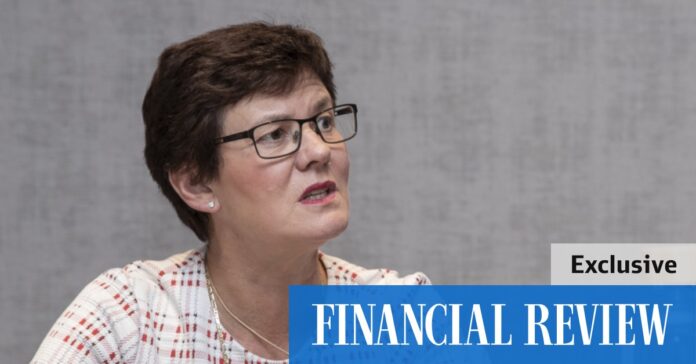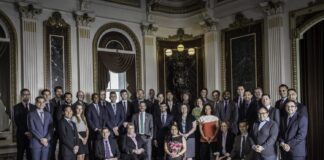
Brotherboy and sistergirl are terms used by Indigenous communities to describe transgender people. The third gender refers to people who are not regarded by society as men or women. Intersex is a term for people whose sexual anatomy is not clearly male or female.
40-40-20 target
Even though applicants were told the “information will not affect your application”, KPMG has publicly adopted a gender principle for partners of 40 per cent men, 40 per cent women and 20 per cent others, “allowing us to include those who identify outside the binary”. The 20 per cent can include men, women and non-binary people.
The information “will only be used in aggregate for understanding diversity and inclusion in our recruitment process and developing initiatives and interventions to help support this”, applicants were told.
A lawyer at Harmers Workplace Lawyers, Amy Zhang, said even asking for information that might be used to discriminate against applicants was unlawful in Queensland, and KPMG risked giving unsuccessful jobseekers grounds to sue.
“It’s always risky to ask these sorts of questions at the application stage,” she said. “A better approach would be to send out an anonymous survey after the recruitment process has ended.”
Applications to start as graduates next year at KPMG closed in May. One applicant for the highly sought-after jobs was concerned by the personal nature of the questions and photographed them and shared them with a friend, who provided them to The Australian Financial Review.
Pride in Diversity
Chaired by Alison Kitchen, KPMG is a founding member of the Pride in Diversity organisation, which runs the Australian Workplace Equality Index awards, and was started by the Diversity Council of Australia and ACON, which was originally the AIDS Council of NSW.
“At KPMG, we are committed to creating an inclusive workplace that promotes and values diversity,” a spokeswoman said.
“Our graduate application process asks a diverse range of questions about candidates’ backgrounds which are voluntary. We use these in aggregate to build a statistical picture of our progress in achieving a diverse workforce.”
Competitor PwC reported this year that 0.5 per cent of its staff in Australia were “non-binary, gender diverse or not known”.
A global survey by Deloitte of 600 staff who were not heterosexual or cisgender found 5 per cent were trans or non-gender, 3 per cent were pansexual, 3 per cent asexual and 2 per cent queer, which is a general term for non-heterosexual or cisgender people.








